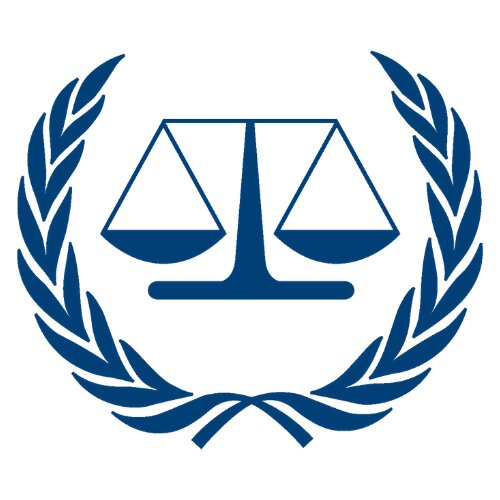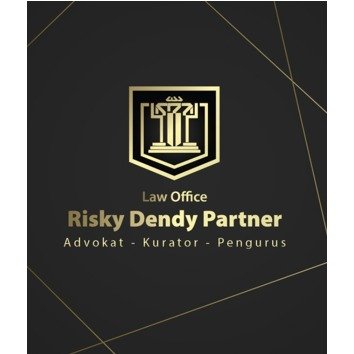Best Adoption Lawyers in Indonesia
Share your needs with us, get contacted by law firms.
Free. Takes 2 min.
Free Guide to Hiring a Family Lawyer
Or refine your search by selecting a city:
List of the best lawyers in Indonesia
About Adoption Law in Indonesia
Adoption in Indonesia is a legal process that allows individuals or couples to become the legal parents of a child who is not biologically their own. The process is governed by Indonesian law and is subject to specific requirements and regulations. Adoption is primarily intended to provide a stable and loving family environment for children who cannot be raised by their biological parents.
In Indonesia, the adoption process aims to protect the rights and best interests of the child, while also considering the suitability of adoptive parents. The legal framework for adoption includes provisions for both domestic and international adoption, each with distinct procedures and requirements.
Why You May Need a Lawyer
Adopting a child can be a complex legal process, and there are several reasons why you might need legal assistance:
Understanding Legal Requirements: A lawyer can help you understand the legal requirements for adoption in Indonesia, ensuring you meet all necessary criteria.
Handling Paperwork: Adoption involves extensive paperwork, and a lawyer can assist with preparing and submitting the required documents.
Navigating Procedures: Adoption procedures can be complicated, and a legal professional can guide you through court hearings and other formalities.
International Adoption: If you're an international applicant, a lawyer can assist with cross-border legal issues and liaise with relevant authorities.
Resolving Disputes: In case of any disputes or complications during the adoption process, legal representation can help protect your rights and interests.
Local Laws Overview
Adoption in Indonesia is regulated by several legal instruments, including the Child Adoption Act, the Civil Code, and relevant government regulations. Here are some key aspects to consider:
Eligibility: Adoptive parents must be legally married, at least 25 and no older than 45 years, and at least 15 years older than the child. Single women may adopt under certain circumstances.
Consent: Consent from the child's biological parents or guardians is required unless parental rights have been terminated.
Residency: At least one of the adoptive parents must be an Indonesian resident. For international adoptions, additional requirements apply.
Court Approval: Adoption must be authorized by a court decision, ensuring all legal prerequisites are met.
Agency Involvement: Prospective adoptive parents may need to engage the services of a licensed adoption agency.
Frequently Asked Questions
What are the basic legal requirements for adopting a child in Indonesia?
The basic requirements include being married for at least two years, being between the ages of 25 and 45, and being at least 15 years older than the child. Additionally, at least one parent must reside in Indonesia.
Can single individuals adopt a child in Indonesia?
Yes, single women can adopt under certain conditions, but it is generally more challenging compared to married couples. Single men face more restrictions.
Are there any restrictions on international adoptions?
Yes, international adoptions are subject to stricter regulations, and adoptive parents must work with authorized adoption agencies and comply with both Indonesian and home country laws.
How long does the adoption process typically take in Indonesia?
The process can take anywhere from several months to a couple of years, depending on various factors such as the type of adoption and the court's schedule.
Is there any financial assistance available for adoption in Indonesia?
There is no government-provided financial assistance specifically for adoption in Indonesia. However, some private organizations may offer support.
What are the rights of biological parents after adoption?
Once the adoption is finalized, the biological parents relinquish all legal rights and responsibilities towards the child.
Can adopted children inherit from their adoptive parents?
Yes, adopted children have the same inheritance rights as biological children under Indonesian law.
What is the role of adoption agencies in Indonesia?
Adoption agencies facilitate the adoption process by conducting home studies, providing counseling, and assisting with legal procedures.
Is it necessary to involve a lawyer in the adoption process?
While not mandatory, involving a lawyer can help navigate complex legal requirements and ensure that the adoption process goes smoothly.
What documents are required for adoption in Indonesia?
Key documents include marriage certificates, birth certificates, health certificates, financial statements, and police clearance certificates, among others.
Additional Resources
For further assistance and information on adoption in Indonesia, consider reaching out to the following resources:
The Ministry of Social Affairs: The governmental body overseeing adoption policies and regulations.
Licensed Adoption Agencies: Organizations that provide adoption services and facilitate the process.
Legal Aid Foundations: Non-profit organizations that offer legal support and advice for adoption-related issues.
Indonesian Family Forums: Community groups that provide support and advice for adoptive families.
Next Steps
If you are considering adoption in Indonesia and feel you need legal assistance, here are some steps to follow:
Consult a Legal Expert: Engage a lawyer specializing in family law or adoption. They can provide tailored advice based on your individual circumstances.
Gather Necessary Information: Collect all relevant documents and information needed for the adoption process.
Choose an Adoption Agency: Select a licensed adoption agency with a good track record and experience in handling adoptions.
Attend Adoption Seminars: Participate in seminars or workshops to better understand the adoption process and expectations.
Stay Informed: Keep updated on any changes in adoption law or requirements by regularly checking reliable sources or through legal counsel.
Lawzana helps you find the best lawyers and law firms in Indonesia through a curated and pre-screened list of qualified legal professionals. Our platform offers rankings and detailed profiles of attorneys and law firms, allowing you to compare based on practice areas, including Adoption, experience, and client feedback.
Each profile includes a description of the firm's areas of practice, client reviews, team members and partners, year of establishment, spoken languages, office locations, contact information, social media presence, and any published articles or resources. Most firms on our platform speak English and are experienced in both local and international legal matters.
Get a quote from top-rated law firms in Indonesia — quickly, securely, and without unnecessary hassle.
Disclaimer:
The information provided on this page is for general informational purposes only and does not constitute legal advice. While we strive to ensure the accuracy and relevance of the content, legal information may change over time, and interpretations of the law can vary. You should always consult with a qualified legal professional for advice specific to your situation.
We disclaim all liability for actions taken or not taken based on the content of this page. If you believe any information is incorrect or outdated, please contact us, and we will review and update it where appropriate.
Browse adoption law firms by city in Indonesia
Refine your search by selecting a city.















